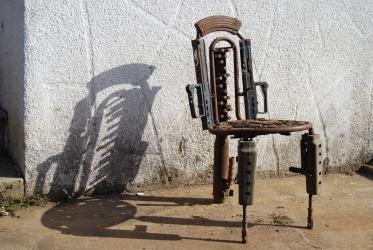Displaying 1 - 20 of 25
Kirche sollten ihre Stimme gegen den Klimawandel erheben
26 February 2020
Churches should use their voice on climate change
26 February 2020
WCC statement welcomes hopeful turn in Korea
20 June 2018
During Advent, WCC invites the world to “A Light of Peace”
14 November 2017
Prayer and hope mark anniversary of atomic bombings
05 August 2016
“Die Welt muss von Nuklearwaffen befreit werden”
06 August 2015
“The world must be freed of nuclear weapons”
06 August 2015
Religious leaders urge a ban on fully autonomous weapons
02 April 2015








